The people and things closest to you eventually become invisible to you. That which you see every day for decades becomes so imbedded in your processor that the nerve endings are dulled to them. Strangers are in clearer focus than your parent, your child, your spouse. Familiarity breeds transparency.
So it is with music. Take The Beatles, for example. I listened to every cut of theirs several bejillion times, from the day they were released. They’ve been inaudible to me for decades. I used to try tricks like listening to only one channel with the bass cranked up while standing on my head. It worked a little, but I got dizzy. All the newly remastered sets? The same. If I really, really focus, while lying on a bed of nails, with two prison guards dashing me with a bucket of freezing water after each track, I can summon enough concentration to probe the music just a bit. But usually, if I want to experience a Beatles song, I just close my ears and play it in my brain. Ye olde portable neuro-jukebox.
So you can imagine my pleasure when by some fluke of nature or warp in history I’m able to hear a piece of near and dear, great music from 1968-9.
One of my most epiphanous moments in music, I remember it clearly, was reading the then-new and revolutionary rock music tabloid Rolling Stone, sometime in the late summer or fall of 1968. There was a small, modest item in the lower left corner of the front page: ‘Graham Nash (of The Hollies), Dave Crosby (recently fired from The Byrds) and Stephen Stills (of the recently disbanded Buffalo Springfield) have been hanging out together. There are rumors that they might form a new group.’
I sensed then and there that that trio would create a new aesthetic in popular music– elegant, intelligent, and beautiful music with a level of vocal harmonies unknown since the Ink Spots. I had more than an inkling of the impact Nash, Stills and Crosby would make on popular music, way before CS&N. If only they had been selling stock, I’d be a rich man today.
In 1968, The Byrds were the premier American rock group. Their albums “Younger Than Yesterday” and “The Notorious Byrd Brothers” were among the best of the era. Jim/Roger McGuinn was the leader, bassist Chris Hillman was a serious contributor, but madman David Crosby contributed the magic, especially in vocals (‘Eight Miles High‘, ‘Renaissance Fair’, ‘Tribal Gathering’. The Hollies were a pretty darn fine British invasion group, their best songs based on tight harmony (‘Bus Stop’, ‘Pay You Back with Interest‘).
Buffalo Springfield was an LA-based rock group led by army brat/southerner Stills, Winnepegian Neil Young, and Ohio>NYer Richie Furay. All three evolved through the folk music scene into rock. They were immensely talented, sharing the songwriting and guitaring and lead singing, and unfortunately spent most of their energies fighting rather than creating music. When they did shut up and sing, it was occasionally divine.
I’m not going to go off on my anti-Neil Young Big Chief Wah-Wah tirade here. Let it suffice to say that I view him as a talent far inferior to Stills, pretty much an obstacle and an annoyance.
As a live band, Springfield debuted on April 11, 1966 and gave their last concert May 5, 1968. They made three albums. The first, containing Stills’ immortal ‘For What It’s Worth’, has very little else that’s listenable. (Here’s Buffalo Springfield singing it live on the Smothers Brothers TV show, including Tommy in a cowboy outfit, Stephen doing a Chuck Berry duckwalk, and the guitars painfully untuned.) The second Springfield album has some of the best music to come out of early rock, especially ‘Bluebird’, the immortal ‘Rock and Roll Woman’ (here’s a live version!) [See also SoTW 198]. The third album had some stunning Stills songs (‘Questions’, ‘Pretty Girl Why‘), but no coherence, as the band was already in its death throes.
BS reunited in 2010-11 in support of the special-needs school backed by Neil Young, where his two sons learned. Well, I hope it makes them happy, and that they make a lot of money for this worthy cause. But in the twoscore years since CS&N and CSN&Y’s breakups, they’ve periodically risen from the grave to haunt gullible, desperate fans with bloated and pathetic echoes of their former demideific selves. I’m not even going to give you any links to that non-music. It’s just painful. Let’s just stick with the Good Old Days.
As far as I can unravel the chronology, around the time of Buffalo Springfield’s breakup, in the spring of 1968, Stills (b. 1945) was hanging out with the very popular and very modestly talented Judy Collins (b. 1939). On April 26th, he accompanied her to a recording session in NY for what was to become her hit album “Who Knows Where the Time Goes”. He was there as boyfriend and studio musician. Stills was a very fine multi-instrumentalist, and has provided the musical backing on acoustic guitar and bass for albums as fine as Joni Mitchell’s “Blue“.
Collins’ album includes Ian Tyson’s song, ‘Someday Soon’, which would become a signature song for her. In this clip, Graham Nash interviews her about the origins of ‘Suite:Judy Blue Eyes’ (written by Stills for her); then Stills joins them on stage to perform ‘Someday Soon’.
At the end of Collins’ recording session, Stills bribed the engineer to stay and allow him to record some songs he’d been working on. Judy went home, admonishing him “not to stay here all night.” Stills relates: “I peeled off a couple of hundreds and told the engineer, ‘I’ve got to record these demos or I’ll forget everything.'”
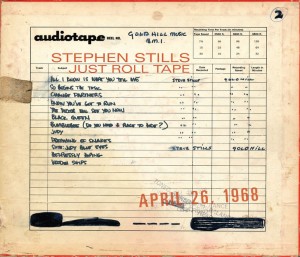 He took a cassette of the songs with him (which he soon lost) and forgot about the session. In 1978, the studio was about to close, and the owner told one musician named Joe Colasurdo to ‘take whatever tapes you want, they’ll just end up in the trash bin’. He took home a box of reel-to-reel tapes, intending to record over them. But one had the name Stephen Stills on it. He heard it, realized that it was a lost treasure. For years he tried to contact Stills to give him the tapes. (If you’re a mortal who has ever tried contacting a celebrity, even for wholly legitimate reasons, you know how utterly frustrating that can be). Eventually he met a friend of a friend of Graham Nash, and got the tape to him. At a recording session with Stills, without saying a word, Nash put on the tape. Stills, and everyone else, was floored. Nash told him he should release it untouched.
He took a cassette of the songs with him (which he soon lost) and forgot about the session. In 1978, the studio was about to close, and the owner told one musician named Joe Colasurdo to ‘take whatever tapes you want, they’ll just end up in the trash bin’. He took home a box of reel-to-reel tapes, intending to record over them. But one had the name Stephen Stills on it. He heard it, realized that it was a lost treasure. For years he tried to contact Stills to give him the tapes. (If you’re a mortal who has ever tried contacting a celebrity, even for wholly legitimate reasons, you know how utterly frustrating that can be). Eventually he met a friend of a friend of Graham Nash, and got the tape to him. At a recording session with Stills, without saying a word, Nash put on the tape. Stills, and everyone else, was floored. Nash told him he should release it untouched.
And, thank goodness, he did. Because it’s so vivid, so vibrant, that it’s enabled me to hear this music afresh. In an NPR interview, Stills calls the music here innocent, much higher than he can sing it today. He said that rediscovering this tape is “like being on a dive and finding a gold sovereign.”
“Just Roll Tape: April 26th, 1968” (that’s what he said to the engineer at the start of the recording) contains 13 songs, none of which he’d recorded previously. This wasn’t a nostalgia trip; it was an initial take on material which would serve him for years to come (he would later record nine of them on subsequent albums). The best known include a cover of Lennon’s ‘In My Life’, and Stills’ ‘Change Partners’, ‘Wooden Ships’, ‘Helplessly Hoping‘, and our Song of The Week, the iconic ‘Suite:Judy Blue Eyes‘.
I find it particularly remarkable that these recordings are so well-cooked. There’s no fumbling, inventing words for unwritten verses, or trailing off when he doesn’t know exactly how to finish the song. He’s a consummate, serious artist, this Stephen Stills.
His guitar playing is stunning–intense, commanding. He uses mostly open tunings; in ‘Suite’, it’s a tuning attributed to Springfield bassist Bruce Palmer, EEEEBE (see the Wikipedia article). His vocals are jaw-dropping technically, and affectively wrenching. This is really fine music, folks.
Stills is a pretty strange character. There’s one video of him at a very laid-back concert “Celebration at Big Sur”, everyone very mellow and stoned and acoustic, until he gets into a fistfight with a fan who rubs him the wrong way. This three-part interview (Part 1, Part 2, Part 3) from 1972 shows a variety of his facets–on the one hand, mispronouncing the word ‘eclectic’ and inventing stories about dodging machine-gun fire as a boy during a junta, on the other hand (in the first part), showing us his open tuning and playing Bo Diddley’s ‘Who Do You Love?’ and Chuck Berry’s ‘You Can’t Catch Me’ for us solo, and then in part 3 playing ‘For What It’s Worth’ on the piano.
“Just Roll Tape” carries more than a modicum of historical interest. After all, Stephen Stills of April, 1968 wasn’t just ex-Buffalo Springfield, he was of course also pre-Crosby, Stills and Nash. Three months after our SoTW recording, at a party at Mamma Cass Elliot’s house, Nash asked Stills and Crosby to repeat a new Stills song they had sung, “You Don’t Have To Cry.” He improvised a second harmony part; they immediately realized that something unique had occurred. They soon went into the studio, and in 1969 released their eponymous first album, making them an instant supergroup.
Together with ‘John Wesley Harding‘, ‘Music from Big Pink’, and ‘Sweetheart of the Rodeo’, ‘CS&N’ was a harbinger – and catalyst – of the new direction the music and the mind of the generation would take. Prior to this music, the world was electric, frenetic and violent –Jumping Jack Flash, speed and Vietnam. On the horizon was the fallout from Dylan’s motorcycle accident, a distinct turn inwards to the organic, the acoustic, the earth-bound. A wholly new reality.
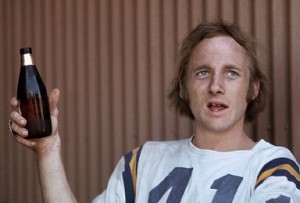 ‘Suite:Judy Blue Eyes’ was a theme song of this change. It was also a hit, ranked 426 on Rolling Stone’s list of the 500 Greatest Songs of All Time, and a symbol of the generation. CS&N would perform it at Woodstock, the signature moment of the festival. “This is the second time we have played in front of people, man. We are scared shitless.” Here’s a lovely montage of the three of them talking, arguing, and singing, including Stills singing ‘4+20’ in the famous appearance on the Dick Cavett show the day after Woodstock, still wearing their mud-caked clothes.
‘Suite:Judy Blue Eyes’ was a theme song of this change. It was also a hit, ranked 426 on Rolling Stone’s list of the 500 Greatest Songs of All Time, and a symbol of the generation. CS&N would perform it at Woodstock, the signature moment of the festival. “This is the second time we have played in front of people, man. We are scared shitless.” Here’s a lovely montage of the three of them talking, arguing, and singing, including Stills singing ‘4+20’ in the famous appearance on the Dick Cavett show the day after Woodstock, still wearing their mud-caked clothes.
The ‘Just Roll Tape’ version of the song is virtually identical to the record version, with two verses inverted and without the ‘Doo-doo’ ending. “That was an afterthought in the studio.” (I got a particularly perverse pleasure from Stills’ story in the NPR interview about how the Bulgarian Women’s Choir, who were “heroes of ours”, sang this section for him. Why is it that when I sing the praises of this group (see SoTW 030), people look at me strangely, whereas when Stephen Stills does it, the girls all swoon?
He also says there that he prefers ‘the middle part’ (‘Friday evening’) of “Just Roll”‘s ‘Suite:Judy Blue Eyes’ to the recorded version. For my money, it’s all very fine. I love how he tunes, and without taking a breath, flies into the song, as if he’s afraid he’ll be tossed out of the studio at any moment and wants to get it all down before that happens. He’s on. Or ‘It’s my heart…’ where he goes into a high, high falsetto, and his aim is oh-so-true. Stevie Winwood would be impressed.
 In the interview, the song is referred to as a breakup song. For all the myriad times I’ve listened to the song, I suppose I couldn’t rattle off the lyrics. I just read through them (printed below, with a transcription and translation of the Spanish at the end). The lyric is far more coherent, unified, and communicative than I’d thought. This isn’t a random assembly of musical parts. It is indeed a suite in the fullest sense, a telling story of the end of a relationship.
In the interview, the song is referred to as a breakup song. For all the myriad times I’ve listened to the song, I suppose I couldn’t rattle off the lyrics. I just read through them (printed below, with a transcription and translation of the Spanish at the end). The lyric is far more coherent, unified, and communicative than I’d thought. This isn’t a random assembly of musical parts. It is indeed a suite in the fullest sense, a telling story of the end of a relationship.
At the end of the NPR interview, Stills thanks Joe Colasurdo for giving him the tapes. “The guy is my friend for life.” Well, let me join you in that, Stephen. Thanks for the very precious gift, Joe. And thanks, Stephen.
It’s getting to the point where I’m no fun anymore,
I am sorry.
Sometimes it hurts so badly I must cry out loud
I am lonely.
I am yours, you are mine, you are what you are
And you make it hard.
Remember what we’ve said and done and felt about each other,
Oh babe, have mercy.
Don’t let the past remind us of what we are not now,
I am not dreaming.
I am yours…
Tearing yourself away from me now
You are free and I am crying
This does not mean I don’t love you
I do, that’s forever,
Yes and for always.
I am yours…
Something inside is telling me that I’ve got your secret.
Are you still listening?
Fear is the lock, and laughter the key to your heart,
And I love you.
I am yours…
Friday evening, Sunday in the afternoon
What have you got to lose?
Tuesday morning, please be gone I’m tired of you.
What have you got to lose?
Can I tell it like it is? (Help me I’m suffering)
Listen to me baby.
It’s my heart that’s a-suffering (Help me I’m dying)
It’s a-dying, that’s what I have to lose.
I’ve got an answer:
I’m going to fly away.
What have I got to lose?
Will you come see me Thursdays and Saturdays?
What have you got to lose?
Chestnut brown canary, ruby-throated sparrow
Sing the song, don’t be long, thrill me to the marrow.
Voices of the angels, ring around the moonlight,
Asking me, said ‘she’s so free, how can you catch the sparrow?’
Lacy, lilting, lyric, losing love, lamenting
Change my life, make it right, be my lady.
Que linda me recuerda Cuba,
La reina de la mar Caribe.
Quiero sólo visitarla allí,
Y que triste que no puedo. Vaya,
Oh va, oh va.
Translation:
How beautiful, it reminds me of Cuba,
The queen of the Caribbean Sea,
I just want to visit her there,
And it’s so sad that I cannot. Oh my
Oh my, oh my (mispronounced)
If you liked this post, you might also like:
053: The Beatles, ‘In My Life’
061: The Doobie Brothers, “What a Fool Believes”
038: Van Morrison, ‘Astral Weeks’
Feel free to recommend Song of The Week to friends.
We enjoy your comments and will try to respond to all of them.
SoTW is a non-commercial, non-profit venture, intended solely to promote the appreciation of good music.
Feel free to recommend Song of The Week to friends.
We enjoy your comments and will try to respond to all of them.
SoTW is a non-commercial, non-profit venture, intended solely to promote the appreciation of good music. Readers are strongly encouraged to purchase the music discussed here at sites such as eMusic or Amazon.

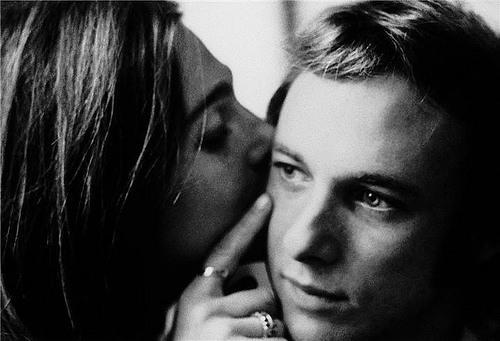

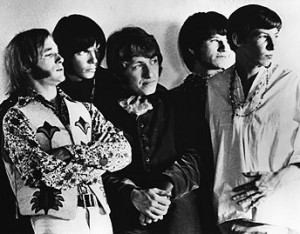
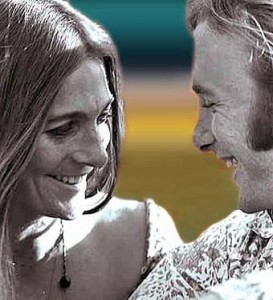
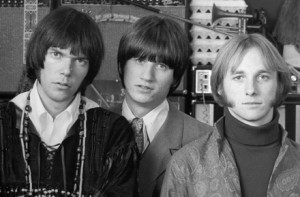
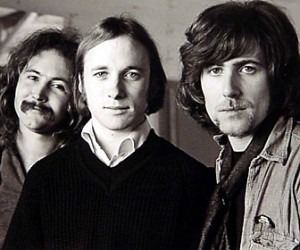



“Let it suffice to say that I view him as a talent far inferior to Stills, pretty much an obstacle and an annoyance.” Yes, I thought I was the only one! Kind of a McCartney/Lennon duality!
Funny, the guys I went through those years with? All of us are non-Youngians. I think the L/M pairing is much more symbiotic. Young & Stills never really collaborated. Stills would work towards tight, group stuff, then Young would drag in his self-indulgent, whiny ego…
Wow! So different from the Judy Blue Eyes I’m used to. Not necessarily better – not only would some of his notes make a castrato wince, but the lack of harmonies bleeds the song dry. But what do I know?
I’d like to hear the entire “Just Roll Tape” – just to enjoy Stills’ raw uncluttered, unadulterated music.
For What It’s Worth is the “hit” of the first Buffalo Springfield album, but it is by no means the best song on that fabled work of musical art. There are the amazing harmonies on “On the Way Home”, “Do I Have to Come Right Out and Say It,” and what what about “Expecting to Fly”? Pure grace.
Wow! Being a Spaniard myself I could never understand a word of the Spanish at the end of Judy Blue Eyes. It´s terrible spanish so I guess that’s why. Anyway, to me this has always been “THE” song, no other can match it. Thanks for this post.
My pleasure!! Teaching a Spaniard Spanish lyrics? An honor beyond my wildest expectations.
Actually a more accurate transcription of the studio version would be:
Que linda me recuerda Cuba,
La reina de la mar Caribe.
Quiero sólo visitarla allí,
Y que triste que no puedo. Vaya,
Oh va, oh va.
Tanslation:
How beautiful, it reminds me of Cuba,
The queen of the Caribbean Sea,
I just want to visit her there,
And it’s so sad that I cannot. Oh my
Oh my (mispronounced), oh my (mispronounced)
I think though, that he changes it some every time he sings it.
I read this post awhile ago and I thought I’d listen to Just Roll Tape,again before I commented.When I first heard it I thought it was no more than a reminder,a bookmark,if you will,of songs ideas.Some complete,others still needing polish.But what really hit me was this;if only Buffalo Springfield had recorded these songs instead of CS&N. I was always a sucker for Stills/Furray harmonies and the Springfield’s attack,whenever they did rock out,which wasn’t too often.(The long version of Bluebird comes to mind)It’s funny,most people dismiss the last Springfield album due to “this and that”.Who cares if different bass players were on every cut.Who cares Neil sent his songs in that were recorded with other musicians.All I cared about were the songs;were they good,did they hold up and would I want to listen to them over and over again.The answer was a resounding YES.When they were first released,among the glut of fantastic LP’s of back then,it was easy to overlook their genius.I know I did.Oh,I was aware of their more rocking songs that KMPX/KSAN played;Mr.Soul and the specially recorded 12 minute version of Bluebird with Steven Stills’ Dewey Martin war cry at the end.Yeah,I was more interested in the Blues,then Blues ala Cream,then Jimi Hendrix etc.I’m just now making up for lost time listening to their 3 albums back-to-back on my iPod while doing my daily walking routine.They clock in at around 2 hours and I love every minute of it.I guess I got off track,but I digress;I keep thinking “if only the Buffalo Springfield had recorded these great songs……………
Oh, I was very much aware of the uniqueness of Buffalo Springfield (the 2nd and 3rd albums). I very much agree that their best stuff takes a back seat to very little. A propos ‘Just Roll Tape’, I just finished rereading Nick Hornby’s “Juliet Naked”, and highly recommend it.
Oh, the memories of those good times. Thank you Jeff ! Loved this one.
I was at the Bridge School benefit concert in 2010 that you mention in the article. Even though we had to wait till after midnight for Springfield’s set on a chilly, rainy, Northern California night, it was totally worth it. They played and sung really well. Probably the only time I’ll ever get to see them, but I’ll never forget it.
Thanks, Jeff. You done it again and made my day.
Jeff, your blogs are a treasure of rock history. I enjoy them all but this one in particular.
Thanks again, Jeff! I needed you to remind me of that music 🙂 Listening to some C, S & N on Youtube right now.
In your post Richie Furay is listed as a NY’er. Furay grew up in Yellow Springs, Ohio. His musical career started in New York in a folk band with Stills.
‘Just Roll’ is a great album. It has the dubious distinction of being the heaviest album I have in my collection (it feels like it must weigh a pound).
I had a similar reaction when I first heard Just Roll Tape. I was drawn to his voice when I was a kid and enjoy hearing it even more now. In harmonies he’s often the grit making things interesting not just beautiful. But hearing him play these songs alone is memorable, especially Tree Top Flyer and 4+20 (and Suite), like he’s just picked up the guitar and you happen to be in the room.
I haven’t listened to all of the links but I can see that I disagree with you about just about everything. Neil Young is way more interesting to me than Stephen Stills. The later version of Judy Blue Eyes is much better. His version of In My Life is of no interest at all. This year I saw Stills in Echo In The Canyon (most of which is on YouTube) and he seems to have had a serious problem with his throat. He was surprisingly hoarse.
I read somewhere that one of James Taylor’s biggest regrets in life is that he didn’t write this song.